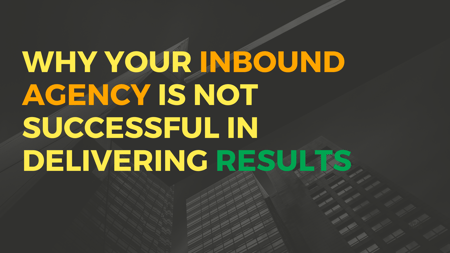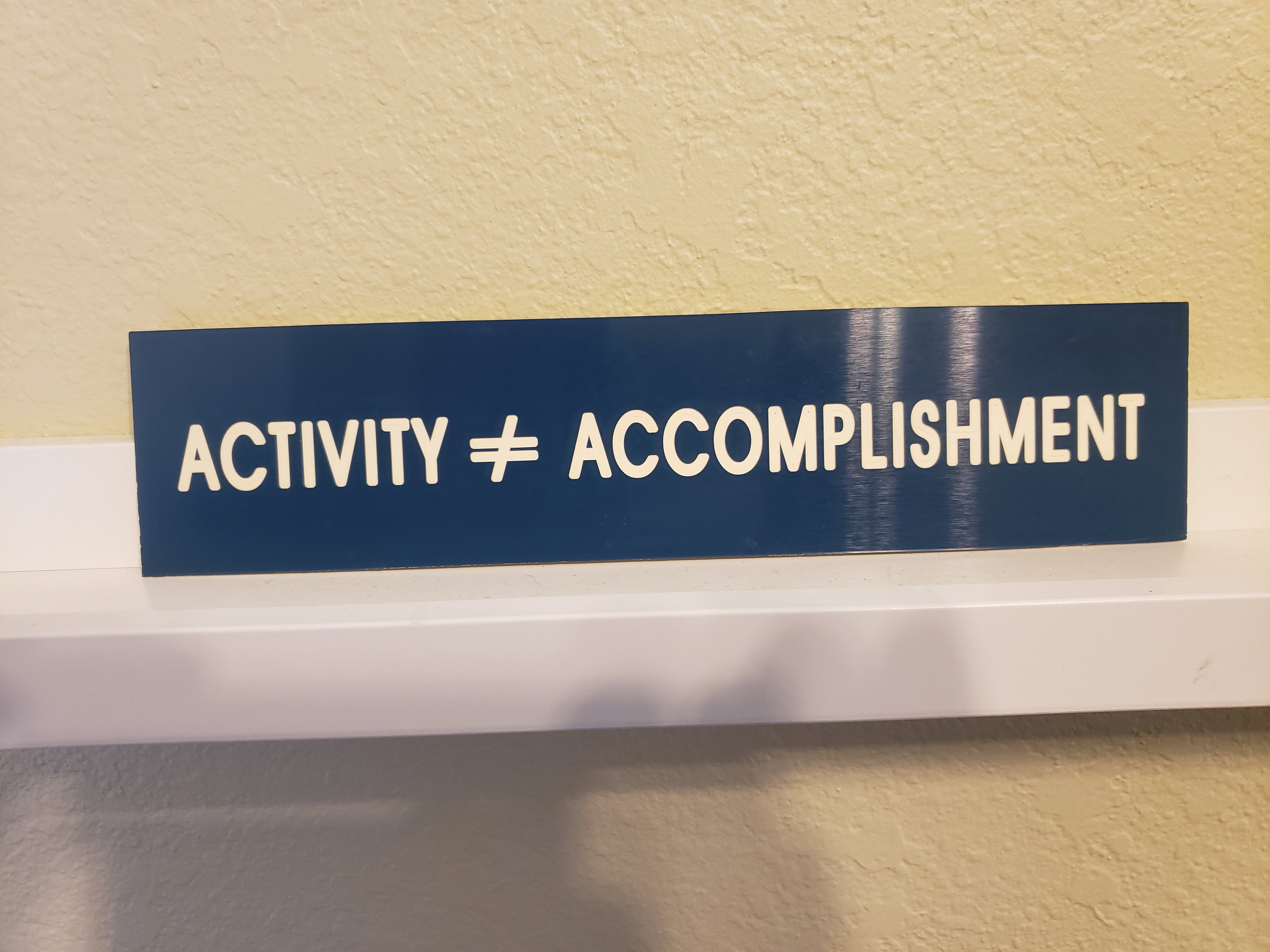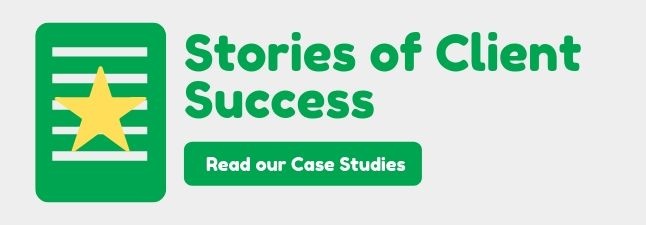Posted by Todd Hockenberry ● Feb 16, 2021
Why your inbound agency is not successful in delivering results
Are you underwhelmed at the results you see from your inbound marketing agency? Is there a large gap between what you were promised and expected and the reality of the impact your inbound agency is having on your bottom line?
 Don’t get me wrong, there are some great inbound marketing agencies out there (if you want my opinion, please reach out and I will tell you who I think are the best). But too many business leaders are frustrated at both the scale and pace of results that matter from inbound marketing - driving top-line revenue and bottom-line profitability.
Don’t get me wrong, there are some great inbound marketing agencies out there (if you want my opinion, please reach out and I will tell you who I think are the best). But too many business leaders are frustrated at both the scale and pace of results that matter from inbound marketing - driving top-line revenue and bottom-line profitability.
We have worked with a lot of agencies over the past 12 years. We have inbound marketing clients we have worked with continuously for over 11 straight years so we have seen what works and what does not work. In some cases, we advise clients and their agency and in others, we actually deliver the inbound marketing work. So we know from hard-earned experience what it takes to drive the results executives expect using inbound marketing.
Time and task focus
Just about every agency I have ever worked with built their billing and time allocation system around points (a certain number of points to do a certain task, and x number of points costs a set amount of money) or hours, which is the traditional method of timing how long it takes to do something and then charging an hourly rate.
Either way, it is the same idea. Points equate to a specific thing being done, say a blog post. The agency allocated 4 points, for example, to create a blog post and then charges $100 per point. What’s the difference between saying it is $400 for a blog post or 4 points?
These systems of managing an agency and determining proper billing lead to task orientation.
Agencies have an incentive to do less work for more points and the customer wants more tasks for fewer points. This setup leads to the agency and customer wanting different things.
On a practical level, the account managers and team members at the agencies focus on getting a certain number of tasks done in a time window - usually two-week sprints - so they are focused on the tasks and making sure the agency can bill for the points.
One of our clients recently asked their agency to build a custom software tool for their website. The agency quoted a certain number of points for the project and when approved got to work. They built the tool on time and miraculously exactly on the number of points quoted.
But after a month we discovered that the tool was not working properly in all cases. After spending 8 hours (according to them) they said the tool was fixed and that there was nothing else they could do. Well, it was not fixed.
So instead of fighting an uphill battle with the agency, our client asked us to take a look.
Our incentive was to fix the problem and not think about hours since we are paid based on results or on specific projects.
This agency, and most other agencies using a points/hours model, clearly was more concerned about spending more hours that they could not get paid for to fix a problem that they caused.
Their incentive was to get it over with as fast as possible.
Make sure you do not create a relationship with an agency based on completing tasks.
Build it on shared commitment and accountability to achieving specific, measurable results.
A cookie-cutter approach to solving problems
Agencies often resort to template solutions to client problems as a way to achieve scale and reduce labor costs. We know of a very large agency with many clients (they also seem to have a large amount of client churn) that has a formula/template for an ebook and uses it for most of their clients. We have taken these ebooks and looked at them side-by-side and they are the same content, adjusted for industry, with the same format, adjusted for the brand.
No prospect or client will long be fooled by cookie-cutter, template-built, content, and inbound campaigns. Agencies that do this need to approach content creation this way to drive scale and compensate for a lack of talent. Neither of those things is good for you, the customer.
Lack of strategic insight into customers
Have you ever had your agency ask you, “what do you want us to do” or some variation of that question?
If you ever hear this you know you are dealing with an account rep with no experience in your industry or expertise in the field. If they had it they would be sharing with you a never-ending stream of ideas to consider. They might know marketing methods but not the mind of the buyer.
In the end, do you get better food from the drive-thru menu or from a gourmet restaurant?
The cheapest agency is just that, the cheapest. Most manufacturing companies need a custom marketing approach based on industry expertise. Not a menu of service to pick from ala carte.
Team approach
Division of labor is not always a good thing for you. The more the tasks for the agency team are broken up, the easier it is for them in terms of scale and getting the maximum number of tasks from their team.
Having an expert do the work means they will focus on what matters to reach your goals and not just to check the task off of the list.
Agencies also notoriously suffer from employee turnover. No consistency on the team means up and down service for you.
Key things leaders need to do in order to help make our inbound agency successful
Pick a strategic direction and stick to it
Do not tell the agency what to do, they should tell you how to get the desired results.
Watch your budget. Cost per lead and costs of sales and customer acquisition are often lower with inbound than with other marketing approaches but there is a limit. You need to budget for talented content creators, marketing automation tools, video production, and a host of other investments.
Yes, investments. A great customer question-focused video for example is an investment. Once you build it the results grow over time, that is an investment. A Google Ad is a cost. You run it once and as soon as you turn it off it stops giving you any return. Not that Google Ads are a bad idea but a long term inbound marketing strategy requires making lots of marketing investments that compound over time.
Evaluate honestly. Look at your inputs, are you prioritizing the tasks your agency asks you to do, or are they at the bottom of your list? Are your expectations and goals realistic? Did you pick your agency based on market knowledge, deep experience (3+ years for team members is recommended), and a proven track record? Or was it the lowest price per month? Do you talk to the agency owner regularly or was the last call the time when you hired them?
Ditch the puffed up formatted reports and use tools like HubSpot and Google Analytics to learn what is going on yourself. Use your tools to tell the story, not the agency account manager or salesperson.
Evaluate the effectiveness of the inbound marketing agency solely on results generated. If you are staring at a list of tasks completed and they are calling that success then that is on you as a leader. Never let the activity substitute for accomplishment.
Check out this sign I used to have on my desk when I was a VP of Marketing and Sales.

Topics: Marketing





